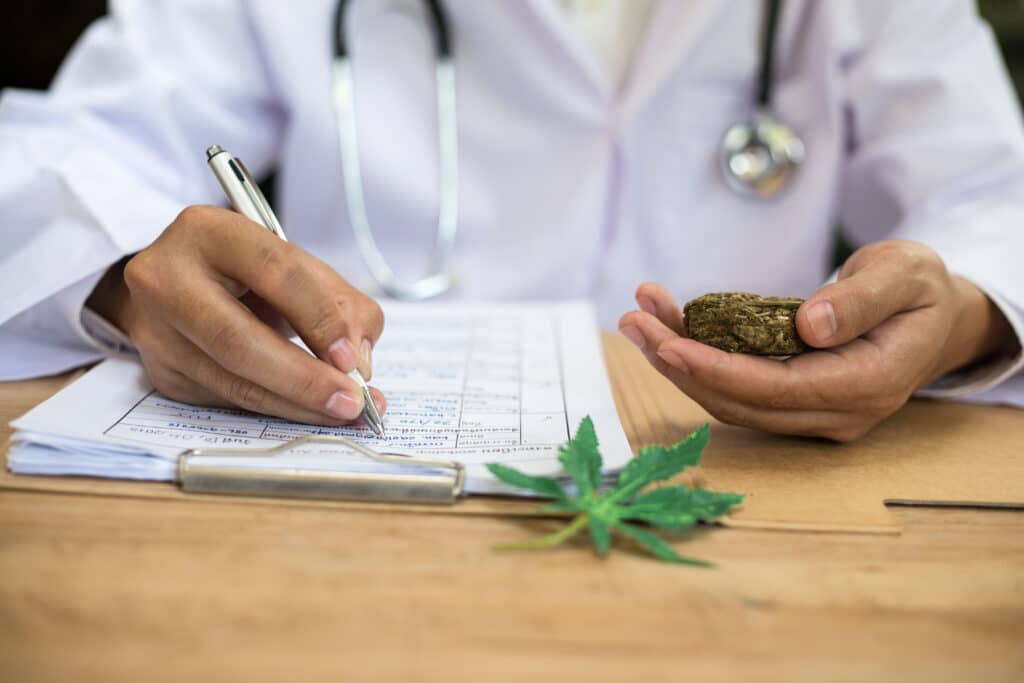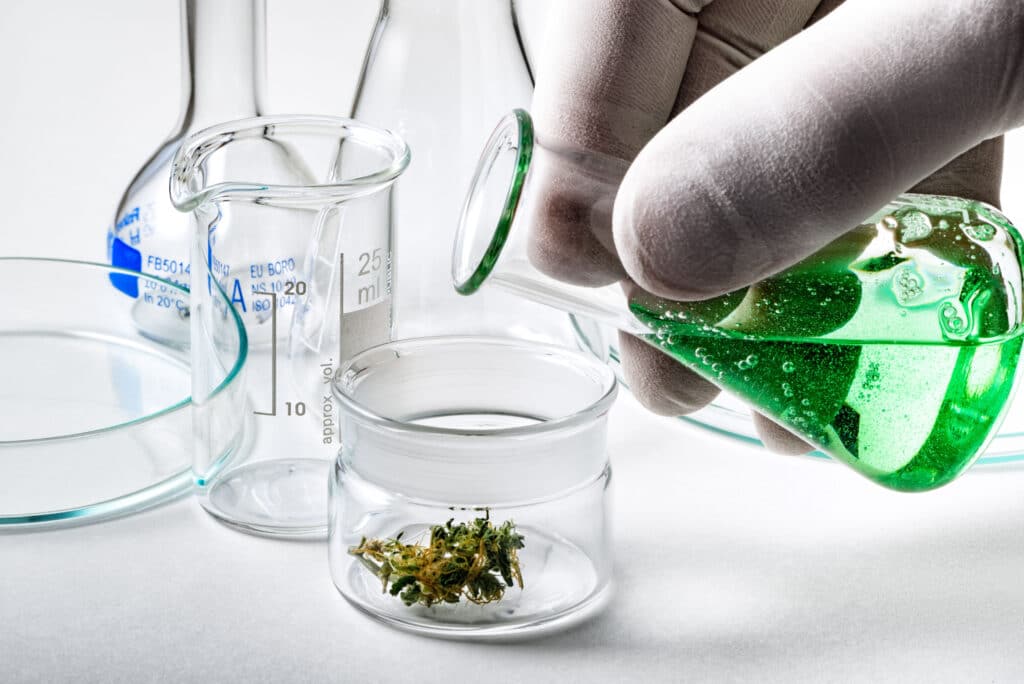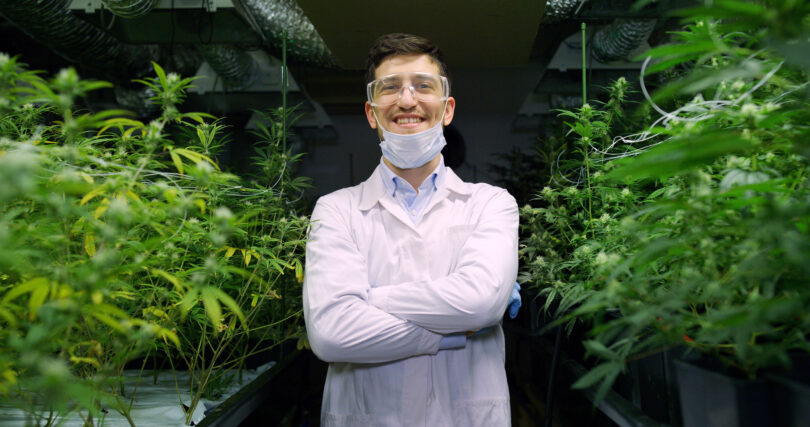The oft-touted government line that there is not enough cannabis research for a legalization, was discredited recently by a NORML analysis of actual cannabis research amounts.
Why no cannabis legalization yet?
We’re at the end of 2023, and cannabis legalization has been a thing in America, to at least a certain degrees, since the 1990s. Back then it was just medical, and just a few states; but since 2018, 24 states have enacted recreational legalization measures, and the grand majority now have comprehensive medical laws – all facilitated by medical research.
No state is able to pass any kind of measure, without backing up the decision with a huge amount of medical research. So it certainly says a lot automatically about what is on offer, that the majority of states have recreational and/or medical policies. It means that that many states were able to pass measures in congress, or approve ballot measures; by supporting their arguments with enough medical research.
Yet one of the biggest lines given by government officials when it comes to why there isn’t a federal legalization for cannabis (or a legalization in a particular state), is that there is not enough research to understand the matter well enough. That there isn’t enough research to make a decision. Even Biden, (who did later offer a pardon for all federal simple possession convictions), held to the overused line while campaigning in 2020, that cannabis shouldn’t be legalized because the topic requires further study.

The thing is, if you look at a lot of the pharmaceutical drugs out there, there often isn’t much of anything backing up their legalization, other than the trials by a single company that got the drug approved. And for some drugs, like synthetic opioids, there isn’t medical research that even remotely claims the drugs are safe, and we know from life circumstances that they are not. Yet despite growing lawsuits against manufacturers and suppliers, these drugs are legal.
The line about not enough research on cannabis for a legalization has never made sense. Life itself as a study shows us that there is no death toll attached, and research indicates there never was one. Study after study confirms the general safety, with tons of positive research concerning medical benefits. So, why are drugs like synthetic opioids legal, while we’re told there isn’t enough research on cannabis for a legalization? And how little research does it mean there is? After all…don’t we see about three new headlines a day??
How much cannabis research is there?
Before looking at numbers, first consider how often you see a headline proclaiming something about medical or recreational cannabis. Maybe its about treatment of an illness, or prevalence of use of an age group, or how often its substituted for other drugs. Maybe its about which weed products sell most, or what survey results say about public thought on adult-use legalization measures. One thing for sure is, we see it in the headlines all the time, and each of these headlines relates to a piece of research.
It would be quite difficult to produce an exact number of the pieces of cannabis-related research out there. But that doesn’t mean approximations can’t be made, and the group NORML recently released a report that does exactly this. And the numbers are definitely out of range to complain about not having enough information.
In fact, according to NORML, there are over 32,000 pieces of research on cannabis from recent history. Now think again about drugs that get approved off nothing more than one set of trials, where there is practically nothing else to be found at all. Yet with cannabis, over 32,000 studies do exist, just from recent years.
These don’t even account for old studies. Most were done in the last ten years, accounting for more than 70% of the total. 90% were published since 2002. In the last three years alone, there have been over 4,000 pieces of research per year. This info comes via keyword searches into the National Library of Medicine and Pubmed, both a part of the National Institutes of Health. As this increase started back in 2013, it means there was actually a substantial amount of research available, since before the first recreational legalization was made.

And just in case you think that everything started in 2002, this is very incorrect. Modern scientific research into cannabis has been going on since 1840, and there are more than 45,900 related research papers dating back to that time. It’s thought that these substantially large numbers would be even bigger, if not for the fact that cannabis is still a Schedule I substance, according to federal policy. This makes it more difficult for some research to be approved and carried out.
The increase in research into cannabis, is supplemented by an increase in applications for new drugs to the Food & Drug Administration. According to the government agency, via Marijuana Moment, it has assessed over 800 applications; and each of these is attached to a large amount of backing research, as well.
This doesn’t jive with statements about not enough research
One of the most often used lines, is not simply that there is not enough research, but that there’s not enough research into safety issues. Beyond the over 45,000 pieces of accumulated research, many of which most definitely get into safety issues; cannabis has been the most popular illicit drug for decades of time. This makes the general population into its own study, for which there is simply a lack of verifiable evidence of damage. We do not have this lack of verifiable evidence when it comes to alcohol, meth, smoking, or opioids.
According to Paul Armentano, NORML’s Deputy Director, “Despite claims by some that marijuana has yet to be subject to adequate scientific scrutiny, scientists’ interest in studying cannabis has increased exponentially in recent years, as has our understanding of the plant, its active constituents, their mechanisms of action, and their effects on both the user and upon society.”
He continued, “It is time for politicians and others to stop assessing cannabis through the lens of ‘what we don’t know’ and instead start engaging in evidence-based discussions about marijuana and marijuana reform policies that are indicative of all that we do know.”
This sentiment is mirrored by NIDA (National Institute on Drug Abuse). Agency Director Nora Volkow explained last year that scientists can only study what they’re permitted to, which legally limits options when it comes to research. According to Volkow, there should be policy changes to allow better access to the plant, at least in legal states. I assume she means specifically about federal research, or about the ability to transport cannabis over state lines; the latter of which is an issue that many researchers face.

In terms of why lines about not enough information are said, or why policy remains in place that inhibits research exploration; well that’s a point of debate. It certainly could be tied to industries that oppose cannabis, like pharmaceutical and plastics, both of which stand to lose a lot of money (or already are, in the case of pharmaceutical) from the growth of cannabis industries.
Due to the sheer amount of research, number of topics covered, overall lack of consistent negative stories, and continued illegal status while more dangerous compounds are legalized; what we do know, is that a lack of federal legalization certainly isn’t because of a fear for children, as a way to prevent health issues in the overall population, or because not enough research exists.
Conclusion
With how slow the federal government is moving, you’d think there really isn’t enough cannabis research to promote a federal legalization. Which makes it a bit shocking that there are actually close to 50,000 pieces of cannabis research out there; and still no confirmable death/injury toll. Certainly enough for a federal legalization.
Thanks for being here! We welcome you to Cannadelics.com, a drugs publication bringing you independent reporting on the biggest stories of today. Join us frequently to keep up with what’s going on; and sign up for the Cannadelics Weekly Newsletter, to access super awesome product promos with every edition.









